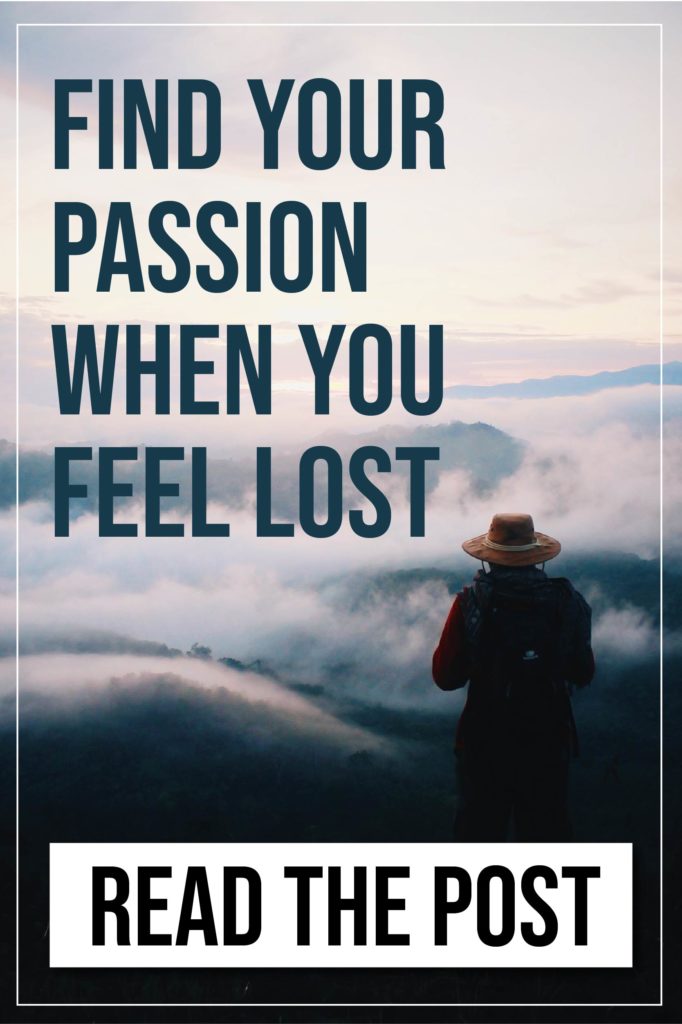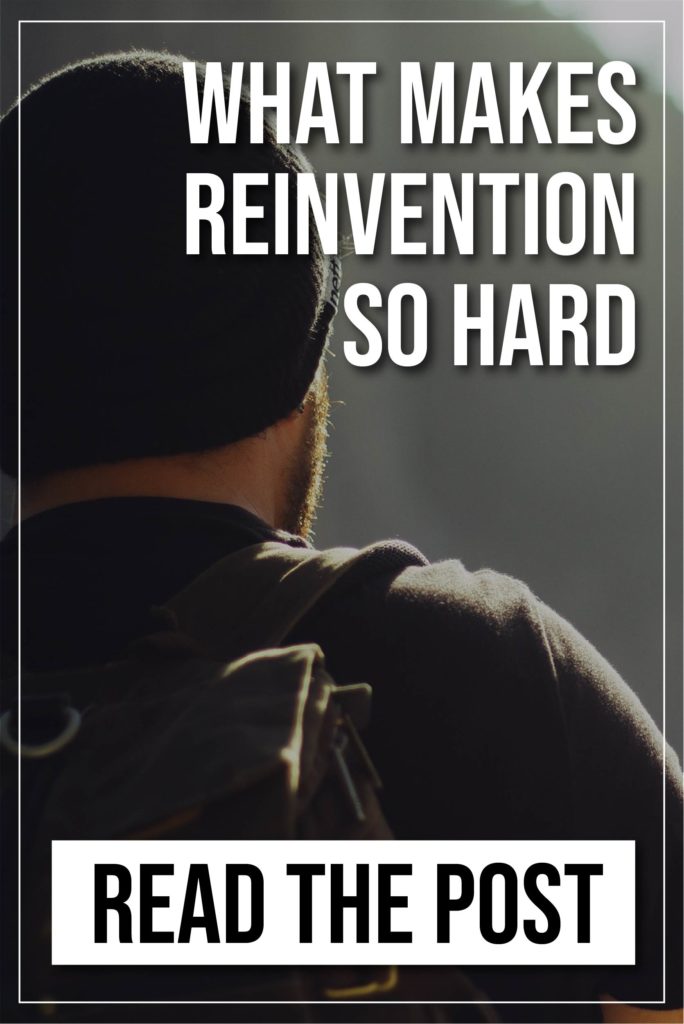Updated Feb, 15, 2021
Can telling your story help you find your purpose in life?
We love to tell stories. In fact, stories are so powerful that they come to define our realities. Our ancestors sat around the fire and told stories. The stories had lessons that had everything to do from where the best places to hunt are to why you should avoid strangers.
But I believe that stories are more than this. In fact, they run deep into the core of our being and how we understand ourselves.
According to the field of narrative psychology, our stories are who we are. We use stories to constitute ourselves. They frame our identity. They become our reality.
I want you to think a little bit about your story. I’ve come to believe some things about stories that I think are vital if you want to find your purpose.
If you are at a point in your life or career where you need to change, I believe that telling a story can do it.
Here’s how.
1. Stop telling yourself negative stories if you want to find your purpose
So many people tell stories that are detrimental to their success.
“No one will ever give me a chance.”
“I’m never going to get hired, I’m overqualified.”
“I did the wrong degree, so there’s no job that I can get with it.”
“People who make a lot of money are evil, or greedy, I’m glad I’m satisfied with what I have.”
These are stories that we tell ourselves. They keep us stuck in a rut. They perpetuate our feelings of inadequacy, they drive us to embrace our worst fears and stay away from our greatness.
Our worst stories explain why we can’t have what we want. They hold us back.
I’ve had so many negative stories, but the one that I–as a PhD–certainly held on to for a long time was, ” I’m wired to be an academic. I just can’t live a different kind of life. Being a professor is the only job that will fulfill me”
One of the fascinating things I learned from the field of narrative psychology is that, whatever our stories about our own identity are, we find evidence to match those stories to ourselves internally consistent—a phenomenon called narrative coherence.
When someone with an advanced degree tells me that they’re overqualified, for example, they’ll focus on the two people who have told them that, as well as their one friend who is struggling to find work.
They’ll ignore the evidence of lots of people who are working great jobs, even though they studied weird, esoteric things. Or, they won’t go looking for evidence to the contrary at all.
When you look at a goal that you have in your life, picture your biggest, most audacious dream, is there a story that you tell yourself about why you can’t have that?
Do you tell yourself a story about why you can’t have the career you want?
Ask yourself these questions:
- Is there a story I’m telling myself about my past or my present that’s holding me back?
- Is there a story that others have told me that I’ve believed and that limits me?
2. Your story is your identity. If you are in the process of changing identities, change your story.
We have stories that we use to make sense of ourselves. They create our identities and help us place ourselves in the world.
And it doesn’t even matter if it’s true! What is a true story anyways? These stories are constructs, creative understandings of our identity.
If you’ve never seen it, Lori Gottlieb’s Ted Talk on this is amazing.
Again, narrative psychology gives us a way to understand this.
“The story is a selective reconstruction of the autobiographical past and a narrative anticipation of the imagined future that serves to explain, for the self and others, how the person came to be and where his or her life may be going”
“Research into the relation between life stories and adaptation shows that narrators who find redemptive meanings in suffering and adversity, and who construct life stories that feature themes of personal agency and exploration, tend to enjoy higher levels of mental health, well-being, and maturity”
Authors- Dan P. McAdams and Kate C. McLean
It doesn’t matter whether our stories are true, or real, or whatever.
What matters is that stories are how we make our meaning.
When I was an academic, my story was “I will only be happy as a tenure-track professor.”
But that wasn’t true. That was just a story I told myself.
These stories hold us back.
One of the hardest things to do is to live in a story that is at odds with the reality of your future.
If you want to find your purpose, identify the story that’s keeping you stuck or the one that doesn’t fit anymore.
Ask yourself this question:
- Is there a story I’m using to understand myself that no longer fits my future?
3. Create a new story about your past that empowers you
What if we could tell a different story?
In fact, I think we can.
If left unchecked our thinking will create a negative story about why our failures mean that we are failures.
I want to challenge you, if you feel stuck and want to find your purpose in life, to begin to tell yourself a different story.
Rewrite it—you get to, it’s your story.
One way I sometimes tell people to do this is to use a story structure like the “Hero’s Journey” narrative from classic mythology. Plug your own story into an outline like this and see how it looks.
Try this:
- Use a story structure like the hero’s journey/monomyth story to write your life/career story.
- List moments in your past that you could use to write an empowering story.
- Write an empowering life story up to where you’re at. Pin it up somewhere you can read it every day.
4. Use your story to find your purpose… and your career
When people find out what they love doing, it’s often something that was there all along.
I’ve been writing since I was a kid, and it’s always something I could disappear into. So while I actually can do academic writing, and probably would have made a decent professor, when I started writing Roostervane blogs it was like coming home.
It felt like the thing I should have been doing all along, but never let myself believe it was possible to make a living at.
Someone I know left academia and went back to working with underprivileged kids, where she had started years earlier. She decided to build a program to give them access to the thing that had changed her life: science. Now she’s using her love of science to change her community.
I often discover that there are threads of story running through people’s lives. When we don’t know what to do, our past often holds keys:
- Have you always loved building relationships with people?
- Have you always loved building things that other people can’t imagine?
- Have you always been someone who would chase down the most minute, factual detail for an argument?
So your story is your career story too. Begin to plot it and work through it. It doesn’t mean your current job is your destiny, it might be a blip in your story.
Then tell this story to people. Put it on your LinkedIn.
Start with things like, “It was while I was a waiter at Denny’s that I learned how much I love making people happy.” These types of stories draw people in, and they’ll draw employers in too.
Answer these questions:
- Can I find consistent themes in my story that help me make sense of the best parts of myself?
- How can I turn my life’s story into an empowering career story?
5. Using your story to build the life you want
The power in doing these story exercises, I’ve found, is that you begin to realize something: You are the author of your own story.
Moving forward, you get to write it. You’re not limited by what people think about you, you’re not limited by your past, you can write the empowering story to your future.
And the best way to author your own story?
Add an ending—or at least a placeholder ending. Get a sense of where the story is going. It’s vital if you want to find your purpose.
Add some goals for yourself. Every morning, write them down again.
Try this:
- Write down a list of goals for yourself for 5 years from now. Be bold and brave! Think big. These are your dreams. Don’t limit yourself.
Once you visualize the end, you can start to think about how you get there. (Check out the post on the question, “Where do you see yourself in five years?“)
Once you can discover meaning in your story, and find your purpose and trajectory, you become the author.
And once you’re the author, your life feels like it’s your own again.
Read the related post, How to Be Successful No Matter What: 4 Rules






